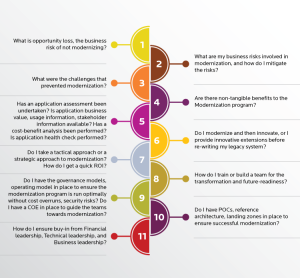
The number of those age 65 and older in the U.S. using the internet has now reached an all-time high of 88% and the aging community is realizing the many benefits that come with the online world. The significant growth in the adoption of broadband has had an incredible impact on the older adult community.
However, there are also challenges online, and one great concern is that of the increasing dollars lost to online scams and fraud. It’s an important time to consider the impact scams are having on the aging community.
The Federal Trade Commission regularly reports on the significant financial loss consumers experience due to scams and fraud. In an October 2023 FTC Annual Report to Congress, the Commission released some important findings regarding fraud and older adults. The findings, based on fraud and scams in 2022, reported that older adults lost more than $1.6 billion to fraud and scams, compared to about $1 billion in 2021.
The losses have steadily increased, and in 2023, reported financial losses to scams and fraud for older adults increased to about $1.8 billion. Also, according to the FTC, the cost to older adults is far greater than reported. Because the vast majority of frauds are not reported, this figure represents only a fraction of the overall cost of fraud to older consumers, which the FTC estimates to be as high as $48 billion.
The FTC Annual Report to Congress also included findings, based on fraud and scams in 2022, that determined older adults:
- Reported losing more to business impersonation scams (particularly scammers pretending to be Amazon) and romance scams than the previous year.
- Were more than six times more likely than younger adults to report losing money to a tech support scam.
- Reported losing big to investment scams: $404 million in reported losses, with reports often describing fake cryptocurrency investment opportunities that targeted people on social media.
There has been an ongoing effort by government, industry, and non-profit organizations to combat the scammers, and to provide consumers with education and awareness tools. Amazon issues reports throughout the year to inform consumers about the latest frauds that scam the unsuspecting customer in the online marketplace.
In Amazon’s latest alert for consumers, topping the list of scams, for the fourth month in a row, are fake order scams. In this scam, unknowing consumers received emails or texts asking to verify a purchase you didn’t make in an attempt to capture your credit card information.
Just recently several tech companies stepped up to join forces in forming a new coalition, Tech Against Scams to help the firms respond and prevent online fraud and financial schemes. The companies include social media company Meta and online dating app parent company Match Group. The coalition plans to share best practices and other tips and information to help keep users safe before any problems arise online for users and before they fall for fraudulent schemes such as romance scams or crypto scams such “pig butchering.”
While the financial cost of scams to older adults has greatly increased, the additional unreported toll on the victims’ mental and emotional health is also substantial, and it is time to focus on the impact that these scams have on the individual scam survivor. In 2024, with support from Members of Congress, the Better Business Bureau (BBB) secured legislation to declare the second Thursday of May each year to be, National Scam Survivor Day.
In addition, the BBB has several resources available to help combat scams and provide survivors with the resources they need to recover. The Scam Prevention Guide offers tips to those who have fallen for a scam to help avoid another unfortunate scam experience.
The Scam Tracker has helpful information regarding the latest scams confronting older adults and the general consumer community. Finally, just this past month, the BBB released the Scam Survival Kit that aids the scam survivors, with information to help them restore their financial, mental, and emotional health.
Although it’s a challenge to counter the skilled maneuvers of those intent on committing fraud, it’s helpful to consider a few tips for combatting scammers. Here are several issues older adults may encounter online that are red flags and may signal there’s a scam that could threaten their online experience:
- Communications with any note of urgency in the message. If anyone is indicating that you need to act immediately, DON’T. Messages requiring your immediate action (for money or financial and sensitive information) are suspicious and often indicate fraud.
- The receipt of an email or text asking for cash (or gift cards/coupons with cash value). One should never send cash (or gift cards/coupons with cash value) in response to any online solicitation, or during online communications, such as when on an online dating site. The FTC has helpful information on Romance Scams, for example.
- Request for financial or sensitive/personal information. Online users should never provide any unsolicited financial or other sensitive information, such as social security numbers or personal health information.
The government, industry, and consumer advocacy organizations are all working diligently to protect online users, but those committed to perpetrate fraud won’t give up. One should not feel victimized by fraud; anyone can experience a scam regardless of income, education, profession – or age. It’s critically important to report fraud and to share as much as possible about the experience to build a safer and more trustworthy online environment.
Debra Berlyn is the Executive Director of the Project to Get Older Adults onLine (Project GOAL), which works to promote the adoption of broadband for older adults, and to advance technology applications for the community. She is also president of Consumer Policy Solutions and serves on the Federal Communication Commission’s Consumer Advisory Committee. She is on the board of the National Consumers League and is a board member and senior fellow with the Future of Privacy Forum. The Expert Opinion is exclusive to Broadband Breakfast.
Broadband Breakfast accepts commentary from informed observers of the broadband scene. Please send pieces to commentary@breakfast.media. The views expressed in Expert Opinion pieces do not necessarily reflect the views of Broadband Breakfast and Breakfast Media LLC.

